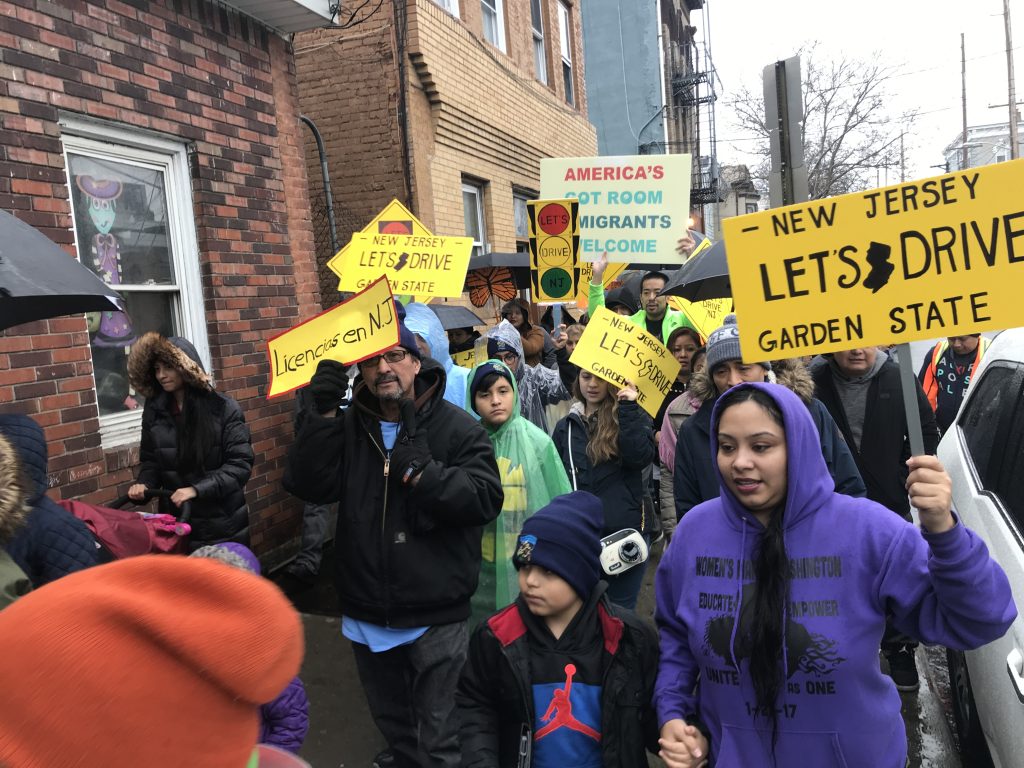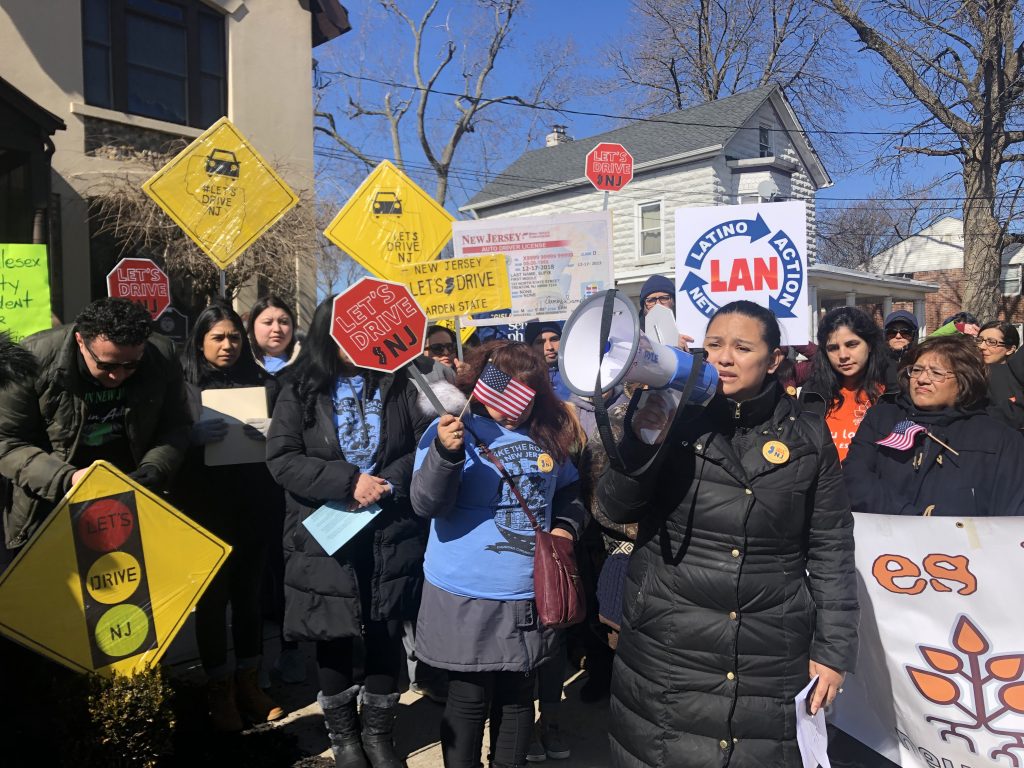Babies being separated from their families and put in cages at the southern border. Small children tear-gassed as they seek refuge in the U.S.
Those of us who have been haunted by the images can feel the urgency to fix it. Yet it is imperative that we remind ourselves that the family separations crisis doesn’t stop at the border. The sight of children going to any airport to say goodbye to their father is no less painful.
Immigrant parents across the U.S. have been preparing their families for the possibility of deportations since President Trump took office – giving friends powers of attorneys over their children.
They prepare like they would for a natural disaster, with safety plans and emergency numbers in a secure place. Every neighborhood where immigrant families live feels the impact of these federal policies.
Advocates are witnessing the dramatic rise in detention and deportation rates across the country.
Immigration arrests aren’t limited to border states
We assume the issue is in border states, but New Jersey, where I live and work, has seen Immigration and Customs Enforcement (ICE) arrests increase by 42%, and houses the 9th highest immigrant detainee population in the U.S.
While the country is horrified by child detention along our Southern border, ICE is also taking parents from their homes and arresting people at immigration adjustment interviews.
Police officers have taken immigration law into their own hands, calling ICE when they interact with immigrants in their communities. Some families lose their loved ones to deportation before anyone is any the wiser.
The simple solution is Comprehensive Immigration Reform (CIR), which would provide a pathway to citizenship to all undocumented immigrants in this country, a proposal that has been in the works for more than 2 decades.
I’ve been fighting for CIR for most of my life and have seen every possible solution at the federal level dwindle from a comprehensive plan to temporary piecemeal bargaining chips.
Action at the state and local levels
What happens in Congress has real consequences in the lives of people: Not having lawful immigration status means they can’t drive, can’t go to college, don’t have health insurance and are afraid of the police.

Let’s Drive NJ Rally in Passaic, New Jersey, calling for expanding access to driver’s licenses for more residents in February 2018.
Many local and state governments have recognized the harm to our communities and stepped in to lessen the burden on our families.
Immigrant communities across the nation are advocating for several policies to help lessen the impact of Congress’s inability to pass CIR:
- Expanding access to driver’s licenses, including in New Jersey through our Let’s Drive NJ campaign, to allow all who can be tested and insured, to drive safely regardless of immigration status.
- Ensuring that local and state law enforcement stop using resources to do ICE’s work. In New Jersey, we are seeing the impacts of our advocacy efforts following the announcement of Attorney General Gurbir Grewal’s Immigrant Trust Directive. This directive is 1 step towards ensuring that law enforcement prioritize community policing that builds trust with immigrant communities.
- Expanding health care access to all, including immigrants.
This is the real-life impact of advocacy work: Families are less scared, and fewer families are separated and deported with the help of state and local law enforcement.
Providing services won’t change the fact that without these policies, immigrant families will still live in the shadows.
Yet despite the human impact of advocacy, New Jersey still has a culture of philanthropy that focuses on service provision.
Service providers often see the limits to their work and are facing challenges in their ability to serve communities because immigration laws are broken and leave many people out of the systems that would protect them.
Area funders who seek to benefit immigrants and refugees also largely focus on neighboring communities and Southern states, leaving New Jersey’s advocates sorely under-resourced.
According to NCRP, per immigrant capita, Texas received double the philanthropic funding for immigrant rights as New Jersey from 2014-2016.
In more stark contrast, Arizona received 13 times more in grant dollars, though New Jersey’s immigrant population was more than double that of the border state.
And compared to New York and Pennsylvania, New Jersey received 2% of funding for immigrant rights in the tristate area, despite being home to more than a quarter of the region’s immigrant population.

Johanna Calle speaks at a petition delivery at New Jersey Assembly Speaker Craig Coughlin’s office in Woodbridge in February of this year. Advocates delivered over 15,000 petition signatures to Speaker Coughlin, Senate President Stephen M. Sweeney and Gov. Phil Murphy’s offices urging them to expand access to driver’s licenses to all residents regardless of immigration status.
Funders should support advocacy at all levels of government
Many still believe that immigration is a federal issue that should be addressed by Congress; that advocacy is a political tool that should be left to political action committees.
However, fighting for immigrants’ rights isn’t a choice of one or the other, and New Jersey is seeing exciting progress.
That is why we are a part of the Winning in the States Campaign with the National Immigration Law Center.
The level of support from new advocates has increased greatly, and many have realized that sitting out the legislative process isn’t an option.
The way to change what is happening in our country is through advocacy. Funders should make this adjustment.
To combat those who want to hurt immigrant communities, take away health care or limit access to education, we need to invest in our communities’ power to organize and advocate at every level of government. Immigrant families can’t afford to not do the same.
We must follow the lead of those impacted. If immigrants can organize, rally, protest, advocate and fight for their rights in this environment, then funders can leave hesitation aside and fight alongside of them.
Funders and donors can learn more about how to best support the pro-immigrant movement with new data, stories and best practice recommendations from NCRP’s Movement Investment Project.
Johanna Calle is the director of the New Jersey Alliance for Immigrant Justice (NJAIJ). Follow @NJAIJ on Twitter and visit www.njimmigrantjustice.org to learn more.














































































































































































































































































































































































































Leave a Reply